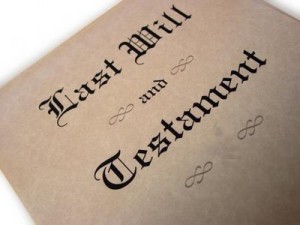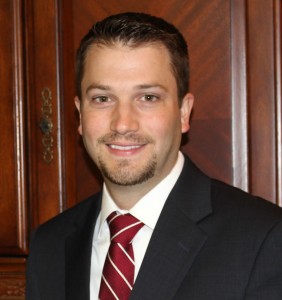![emison,+brett[1]](https://capegirardeaulaw.com/wp-content/uploads/2013/11/emison+brett1.jpg)
Brett Emison was kind enough to take a few minutes to answer 6 questions on becoming a trial attorney. He works at Langdon & Emison and is an active blogger on the Injury Board.
1. How did you decide that you wanted to do trial work?
Growing up I had to decide if I wanted to do more science and medicine or history and law. When I was a sophomore in high school my dad (Kent Emison) and Bob Langdon were just getting started trying complex catastrophic injury cases. They had a case against General Motors called Baker v. GM. I watched them try this case against some of the very best lawyers in the country and really fight for clients who lost their mom in a vehicle fire. They got a really nice verdict, had the verdict overturned on appeal, and took it to the United States Supreme Court. I became really interested in doing that type of intellectually rewarding work, helping families that need help, and just really loving what I do. After law school I spent a year doing corporate litigation and just did not find that nearly as rewarding as helping real people.
2. I’ve read some Rick Friedman and David Ball. I’ve listened to Gerry Spence discuss voir dire. I find them all very interesting. Do you have any experts that you recommend?
We’ve used Jay Burke out of Florida to help with jury selection. I’ve met and talked with David Ball. His philosophies are really good. Gerry Spence’s are also really good. I wouldn’t say there is a right way or a wrong way to pick a jury. The biggest thing is to find jurors who are willing to have an open mind and be fair. I never ask for a jury of 12 people who are automatically on my side. I just want to find a jury of 12 people who are going to give me a fair shake and listen to the evidence. I have enough confidence in my client and our cases that if I have a jury that’s going to give us a fair shot I’m convinced that we’ve got a case that can win.
3. I’m curious about marketing. How do you get people in the door?
I would say that 95% of our business comes from referring lawyers who we know on a personal basis, who have heard about our cases, or who have seen us talk at a seminar.
More and more the internet is going to be a big way to attract clients. My philosophy is not to use the internet for advertising but instead to use it as a way of introducing myself. To use it as a way to engage other people on the internet who are looking for information. I never put “sell language” in my blog post. My name and number is on there. If someone wants to find me they can certainly find me. I’m more interested in reaching out to other people, engaging in conversation, and really having a place where the plaintiff’s side or the injured person’s side can have a voice against the millions and millions of dollars from the U.S. Chamber of Commerce and the tort reform association.
4. Your firm uses a lot of focus groups. Tell me about that.
Focus groups are really important. Anytime you are really involved with something you tend to focus so much on the details and you want to make sure you don’t miss something. I find it very difficult to proofread my own writing. Because I wrote it sometimes my mind skips over errors because I knew what I meant to say. So it is important to get that independent look at your work so that you know what issues you are missing and what questions you need to answer.
We don’t take a case unless it is strong enough to win. In order to win a case you have to be able to communicate that effectively to the jury. It’s not manipulating the facts. It’s figuring out how to effectively communicate that to the jury so that they understand the real issues in the case.
5. With new clients, how long do you tell them to expect the case will take?
I always tell my clients that there are no guarantees in the law. When you are putting your faith in 12 people I can’t promise you a result. The American justice system is the best justice system in the world. Our courts are overworked, they don’t always get the resources they need, and it takes time for the case to go through.
It also takes time to work up a case. With a complex case you may have 250,000 to 500,000 documents to go through and that takes time. You have witnesses to depose, experts to depose, discovery, and pre-trial motions. I would say 18-24 months is pretty typical but it all depends on the venue, what court you are in, what type of case you have.
6. What advice do you have for an attorney just starting out?
Reach out to other people. Develop relationships with lawyers. Develop relationships with the clients that you have. Your reputation is your biggest asset. Your client should be your biggest advocate and your best referrer. Likewise with lawyers that you work with. There is no magic bullet. You have to work hard. You have to be good at what you do. You have to develop the relationships to grow your practice.




![langdon,+bob[1]](https://capegirardeaulaw.com/wp-content/uploads/2013/11/langdon+bob1.jpg)
![emison,+brett[1]](https://capegirardeaulaw.com/wp-content/uploads/2013/11/emison+brett1.jpg)
![280px-Mizzou_Hulston_Hall_02[1]](https://capegirardeaulaw.com/wp-content/uploads/2013/11/280px-Mizzou_Hulston_Hall_021.jpg)